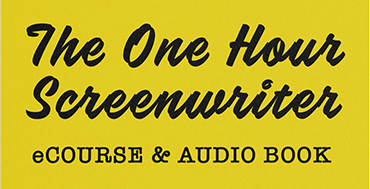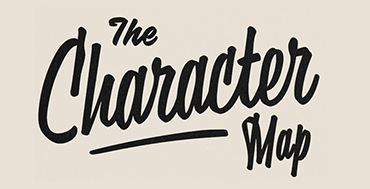Giving Writing Notes on a Script
Writing Advice Wednesday
Last week I wrote about being on the receiving end of feedback. now it’s time for some advice on how to be the person giving that feedback, without stifling creativity and disrupting writers.
 In any television writers room, you are expected to give feedback to other writers and receive notes on your own work. What’s the most effective way to offer comments that are useful and valuable? This is a very thorny challenge.
In any television writers room, you are expected to give feedback to other writers and receive notes on your own work. What’s the most effective way to offer comments that are useful and valuable? This is a very thorny challenge.
Giving notes is one of the most difficult jobs for a producer working with a writer. Offering feedback presents a potential minefield when reading a script for a friend, client or colleague.
The value of participating in any writing workshop can either be greatly enhanced or utterly destroyed by the type of criticism a writer receives from the other participants. Real damage can be done by criticism that isn’t skillful in delivery and content.
When notes are given in a way that is too harsh, brutal or blunt there is a very real danger the writer will simply shut down. That defeats objective number one: Keep the writer writing. If a writer shuts down, then the hope for an improved script drains away. That result doesn’t benefit anyone. Here are the six key elements of giving criticism that is constructive and helpful.
1. Start Positive.
Every writer feels vulnerable and exposed when presenting his or her work for critique or comment. Begin each notes session with a summary of what worked in the script and/or what moments, dialogue or characterisations were particularly effective, striking or memorable. At the very least acknowledge the writer’s hard work, effort, and accomplishment in completing the draft. It means a lot. Beginning on a positive note is simply an act of professional courtesy. Honesty and courtesy are not mutually exclusive. The most effective criticism incorporates both. Also, it gets things off to a good start.
2. Comment on the work, not the writer.
Keep your objective in mind. It’s not your job to pass judgment on the writer. Nor is it helpful. Your job is to assist in improving the script. Keep your questions and comments specific to the action, dialogue, characters, and story. Negative personal comments are counter-productive and don’t accomplish your objective. You cannot inspire a writer to dig deeper, reach higher or work harder by personally attacking or demoralizing him or her. Concentrating on elevating and enhancing the level of the work helps make even the most difficult notes session more palatable and productive.
3. Start with the biggest questions, issues or problems.
If you prepare with notes, and organise your thoughts, this part is going to be much easier. Begin with the most serious areas of concern in the script. Continue to address problems in the order of their importance. Keep the focus on the major issues. Don’t confuse the writer by skipping back and forth between minor nitpicking comments and bigger more problematic challenges. If you do have smaller issues or minor corrections, they are best addressed in pencil notes directly on the script. Return the script with those notations. Reserve your verbal or written notes for your most important points.
4. Ask questions rather than making statements.
When a problem is framed as a question, it feels less threatening and engages the writer more creatively and less defensively. Asking questions is the best way to keep the writer engaged, positive and open. If the writer feels under attack he or she shuts down. Someone who has shut down cannot hear what you have to say and certainly, can’t assimilate or act on your concerns. Questions also help you learn the writer’s intent. Learning this intent can often clarify the issue considerably. Most script problems are problems with execution. If you understand what the writer meant to do, it’s easier to explore why that attempt fell short or didn’t work.
5. Be specific in your questions, not in your solutions.
Don’t speak in sweeping generalities, it doesn’t help anyone. Note the specific areas of the script that need work. Ask concrete questions about the areas where the story or the characters lose focus, don’t make sense or aren’t believable. Resist the temptation to offer specific solutions. Finding solutions is the writer’s job. When you have the urge to offer a particular solution (“Can’t you give the character a dog?”), instead you should look behind that comment and try to determine what problem or issue prompted your question. This isn’t easy. It takes some thought. Specific solutions can sidetrack the issue. Writers often take specific solutions too literally (plugging in the idea or suggestion but never solving the underlying problem) or they dismiss the solution out of hand (because the suggestion itself doesn’t seem that useful). In both cases, the underlying problem never is addressed or solved.
6. End Positive.
Finish your notes session by thanking the writer for his or her hard work. Recap the parts of the script that work well (and which you don’t want to lose or compromise). Restate your commitment to and/or your enthusiasm for the project and the writer. You want to inspire and empower the writer to dig deeper, reach higher and work harder. You don’t want to discourage, demoralise, or depress the writer. Ending on a positive and encouraging note is the best way to keep the writer writing. And that is the only way to achieve your objective or get what you want, which should be the best script possible.
In the final part of this series about notes and working with others, I’ll be examining how successful writing partnerships remain successful.




Create a visual map for a character’s emotional journey. Pull stories from character rather from rote story structure beats. Some of the largest international media companies, use this in story and character development.


A clear concise guide for writers and producers to have by their side as they embark on a project. It gives a really vital reminder of what is key for story success.



No comment yet, add your voice below!